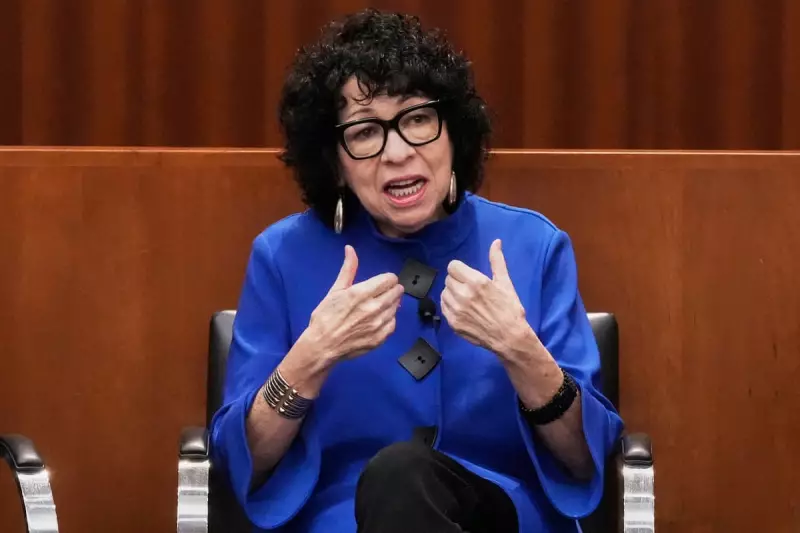
In a stirring and profoundly significant address, US Supreme Court Justice Sonia Sotomayor has issued a powerful reminder of the foundational principles of American democracy, drawing a clear and unequivocal line between the presidency and monarchy.
Speaking with notable gravity, Justice Sotomayor emphasised the critical distinction that defines the US republic. "We have a president, not a king," she stated, a phrase that resonated as a direct rebuttal to expanding interpretations of executive authority.
The Core of the Argument: A Republic, Not a Monarchy
Her speech, delivered to an audience of legal scholars and students, served as a robust defence of the constitutional system of checks and balances. Sotomayor articulated deep concern over legal arguments that would grant the president sweeping immunity from judicial review, a notion she suggested was fundamentally at odds with the vision of the nation's founders.
She passionately argued that such a concentration of power would effectively place the president above the law, a concept alien to the US Constitution and dangerously reminiscent of the imperial rule the American revolution sought to escape.
A Defence of Judicial Independence
At the heart of her message was a fierce defence of the judiciary's role as a co-equal branch of government. Justice Sotomayor positioned the courts as the essential bulwark protecting citizen liberties from potential overreach by the executive branch.
"The job of the judiciary is to ensure that no one, not even the president, is immune from the scrutiny of the law," she asserted, framing this not as an act of aggression but as a fundamental duty vital to the nation's health.
Context and Implications
While not explicitly naming specific cases or individuals, the timing and content of her remarks are widely seen as a commentary on ongoing legal debates concerning the scope of presidential power and immunity. Her words enter a charged national conversation about the limits of executive authority and the resilience of democratic institutions.
This powerful intervention from the bench underscores the ongoing tension within the US government's structure and serves as a poignant reminder of the fragile nature of the balance of power.
Justice Sotomayor's speech ultimately stands as a clarion call for vigilance, urging a reaffirmation of the core democratic principle that in the United States, the law must always be the supreme power.





